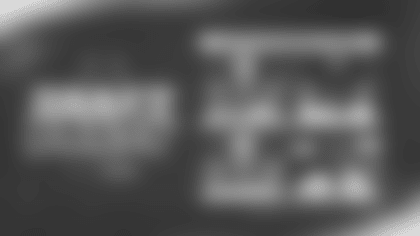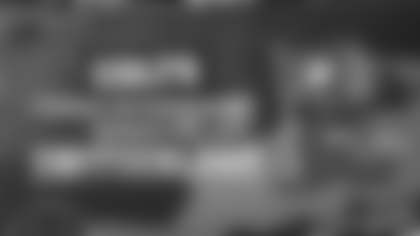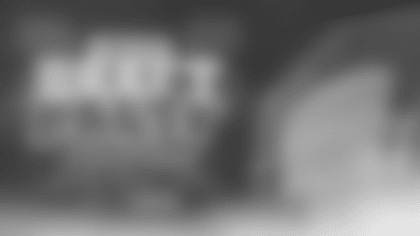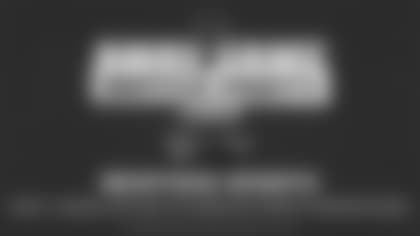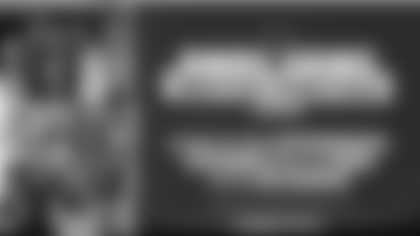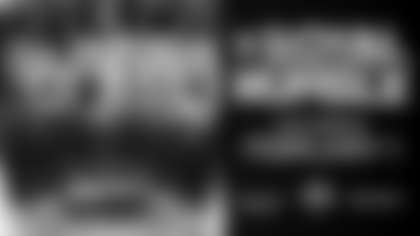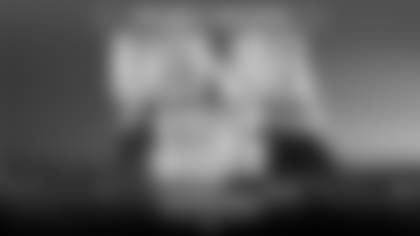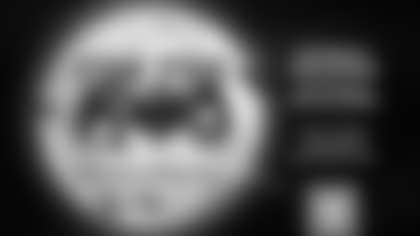Bill Polian, in his 12th season as Colts president, has a resume
unique in the NFL. One of two men to win NFL Executive of the Year
five times, Polian in the 1980s built the Buffalo Bills into a
four-time Super Bowl participant. In the mid-1990s, he built the
expansion Carolina Panthers into a team that made the NFC
Championship Game in its second season, 1996. Since joining
Indianapolis in 1998, he built the Colts from a 3-13 team in 1997
and 1998 into one that has made the playoffs 10 of the last 11
seasons, including an AFC Championship Game appearance after the
2003 and 2006 seasons, AFC South titles in 2003, 2004, 2005, 2006
and 2007 and a Super Bowl championship following the 2006 season.
Each week during the season, in The Polian Corner, Polian and
Colts.com will discuss issues pertinent to the Colts and the rest
of the NFL.
Q: A 35-34 victory over the New England Patriots Sunday night – yet another memorable, dramatic game between the two teams . . .
A: It was an amazing game. It's important to right at the outset put it in perspective. It's one game and one game only. It has little effect on the playoff races – only because it's an AFC game and it might come in to play as a tiebreaker at some point. Now, after the game is over, everyone is saying, 'Well, we [the Colts] now have a lock on this, that and the other thing.' We have no lock on anything. We have seven more games to play. The next game against Baltimore is the most important one. It, too, is an AFC game. We just have to keep focused on that. Players need to listen to one voice, that of [Head Coach] Jim Caldwell. We don't need to be debating or talking or thinking about this permutation or that permutation in the playoff race, because there isn't a playoff race just yet, and there won't be until Thanksgiving. It was a very entertaining game, but as I said last week, 'It's one game.' It's entertaining. It's exciting. People make it out to be much more than it is. It's fun for the fans and naturally fun for all of the viewers around America, but that's all it is. We have to put it behind us and move on.
Q: Anything stand out from looking at the tape?
A: In our meeting [Monday], there were a number of points each coordinator made. On offense, it really truly was a tale of two halves. The first half, we had lots of pressures. We had four penalties. We had some drops. We had two interceptions, one of which was a miscommunication between a receiver and quarterback, and the other was a ball that just got away. That's going to happen from time to time. We had a total of 10 pressures throughout the ball game, which is too many. Yet, we hung in and battled through that. We got much better in the second half and really, in the end, we did what we had to do to win the game. That was good, but it wasn't a stellar performance. Having said that, there's another team over there. They're pretty darned good, and they had a great plan. They really did a great job. They force you, the Patriots do, early in the game, to figure out what they're doing. There was a lot of conjecture as to how they would play us. I talked to [former Colts Head Coach] Tony [Dungy] on Saturday night and he was exactly right. He said, 'They're going to play coverage,' and that's what they did. They played four-down nickel, five defensive backs and two linebackers. They essentially tried to pressure us with their front four. They did very little blitzing. Then, they had a series of complicated nickel and sometimes dime – six defensive backs – coverages behind them. They were trying to take away [tight end] Dallas [Clark] and trying to take away the crossing routes – in many cases trying to take away [wide receiver] Reggie [Wayne]. It took us a while to figure it out. It took us a while to get it blocked up. It took us a while to be in a position where we could make plays, but ultimately we did. Defensively, it was kind of a tale of two halves as well. They came out in essentially run formations – what we call 'heavy,' where they actually had an extra offensive tackle in the game, principally because they were going to try to block up as much of our rush as they could. They did a wonderful job of it. Then, they tried to throw the ball deep. They had really good success with it going to [wide receiver Randy] Moss. On both occasions, it was great throws by [Patriots quarterback Tom] Brady – really incredible throws. To get the ball over [middle linebacker] Gary [Brackett] on the long pass that went deep and led to a score was an outstanding throw. Gary was in great position and probably 8-to-10 inches from knocking the ball down. Then, on the other [long pass to Moss], [Colts safety] Antoine Bethea had Moss covered as well as he possibly could cover him. Interestingly enough, they made the same exact play last week against [Miami Dolphins cornerback] Vontae Davis, the same play, same throw. It was just an incredible throw, and he made a great catch. There's not much you can do about that. That's why they are who they are. That's why they're the New England Patriots, and that's why he's Tom Brady. With respect to the run, they had only one run that got out all night. That's a change from the way things have been in this series, if you will. That was great. We did a good job there. They had one sustained drive the second half, which resulted in a great play by [Colts linebacker] Philip Wheeler, knocking the ball out. We recovered a fumble down near the goal line. When we had the turnover deep in our own territory, we held them to a field goal. In the second half, with a little bit of a change in strategy and a whole bunch of great execution and great effort, we were able to do a great job in terms of containing them. That sounds funny when you say, 'Well, they scored 34 points.' But our defense really did a heck of a job. The punt return was unfortunately the play that tipped the balance on special teams in their favor. Otherwise, it was a standoff. The biggest special teams play of all was great strategy and great execution: kicking the ball deep and out of the end zone on the second-to-last kickoff. Then, of course, we made a terrific tackle on the ensuing kickoff, which put them way back down there with nine seconds to go. A lot has been made of the decision [Patriots Head] Coach [Bill] Belichick made. That's for them to talk about and for them to deal with, but what I don't think has been talked about a lot is that we had to execute in that situation. In that particular situation – and this may speak to some of Coach Belichick's strategy, which personally I think is sound – we had to defend three things when they went for it on fourth down. We had to defend a hard count, trying to pull us offside, because it was 4th-and-2. We had to defend a quick-snap quarterback sneak, which they do quite frequently on fourth down. Then, we had to defend a pass, some sort of a pick play, which they typically do in short-yardage situations, so we had to be prepared to defend all three situations in a very quick kind of hurry-up mode, so to speak. We did a terrific job of it. Even though they made a decision to do X, Y or Z, we still had to be in a position to execute no matter what they did, and we did. Great credit to our defense for that. Again, it sounds funny to say, 'You gave up 34 points, but the defense played great,' but they did, particularly so in the second half. Our whole team, and Jim emphasized this [Monday] morning, fought for 60 minutes. You couldn't be prouder of them. Yogi [Berra] said, 'It's not over 'til it's over,' and we believe that. We play for 60 minutes, and furthermore when we play the Patriots it's not over 'til it's over no matter where we play. It was a great game for America, a great game for the NFL. It proves once again the popularity of the NFL is not driven by slogans or marketing campaigns or stuff like that. Our marketing people here at the local level do a phenomenal job. I should sent out kudos to the people in this building who orchestrated it and to all of our fans. That building was rocking [Sunday] night. That's great. It's a great atmosphere. It's great for the city. But it's also great for our football team. Just to watch the tape, when you see the reaction of the crowd – you get the scoreboard shot that precedes every play. You see people jumping up and down. It's really exciting. The building was electric – so more power to our great marketing department, [Senior Vice President of Marketing] Tom Zupancic and all of his people and our fans. But at the national level, it's not slogans or anything like that that sells the NFL. It's these great athletes and these great coaches making great plays and just scintillating America. That's what makes the NFL America's No. 1 sport.
Q: Officials aren't always perfect, but the call at the end of the game – you have to be really alert to make that call correctly . . .
A: You do. I have to go back and look on the tape to see who it was. I saw the juggle from my vantage-point – the hands moving up and down, which indicates a juggle – and I thought he had dropped the ball. Then, I saw them spot the ball. [Vice President of Football Operations] Chris [Polian] said to me, 'No, no, no. He bobbled it.' Once the bobble takes place, you don't get forward progress at that point. You have to secure the ball. [Safety] Melvin Bullitt was 'Johnny on the Spot.' He came driving in there a hundred miles an hour. He put [Patriots] running back [Kevin] Faulk right on his back. One national reporter said to me [Monday] he thought it was a foot short and even if they had replayed it and measured it, it still would have been short. It didn't matter [Sunday] night. It was what the official ruled it was. It takes courage and a lot of alertness to make that call.
Q: The young players on the team had heard about games such as this. Now, they've been through it . . .
A: Many of the young players – [cornerbacks] Jerraud Powers and his running mate at the other corner, who had to go start [Jacob Lacey] – were watching these games on television the last four years. Now, they're out there playing it. It's very, very different, obviously, on the field. You have to shake off the mindset that this is an event and recognize that you're a National Football League player and you're playing against very, very good players, and you have to go out there and execute. And they did. Our young secondary did a phenomenal job. [Wide receiver] Austin Collie did a great job, too. He started off a little bit rocky. They gave him some tough coverage that he hadn't seen before and he came back and shook it off and earned a pass interference penalty, which was a big play toward the end of the game. He made a couple of big catches. It's all part of the learning process. You'd rather they learn it playing on special teams. We haven't had that luxury this year, so they went out acquitted themselves admirably.
Q: Did it seem like the Patriots took their second timeout in the second half because they were trying to alleviate the crowd noise?
A: It's always possible. I don't know. Tom Brady called it, it seemed to me, in response to a front he didn't like. Maybe there was a better play or something like that that he couldn't get into. I don't recall if they changed position groups. My sense was Brady did it because there was something he wanted from the bench, but who's to know?
Q: Do you get the idea that punter/kicker Pat McAfee is outkicking his coverage at times?
A: The kickoffs have been marvelous. They have been great. He has been kicking them high, and he has been kicking them deep. Then, as I mentioned, the strategic move where we lined up with the onside kick team after our second-to-last touchdown and kicked it deep where no one could handle it was really a tremendous strategy and great execution. The punt that got out was not his best punt. If he had hung it a little higher and little longer, I think we probably get that. But [wide receiver Wes] Welker is a heck of a punt-return man. Once you get him a little bit of an alley in which to run – especially if the punt it not really high where you can get your people down the field and spread out – he's liable to go. That's what he did. The punt wasn't great, but neither was the coverage. That's the only one we've had all year that really has been what I would call not top-notch. The rest of it has really been very top-notch. We're very, very satisfied with the kicking game. It has been great for us and as I've said, when you're up against the New England Patriots, who have a phenomenal history of success on special teams and winning games on special teams, to get a draw is really your goal. We came within one play of doing that, but that play led to a touchdown, too. We have to get better there, but it has been good all season and there's no reason to believe it won't continue to be.
Q: What's your assessment of the crowd noise in Lucas Oil Stadium? Do you have a way to measure that?
A: There is a way to do that, obviously, with a decibel meter. We have not bothered to do it. I took my own scientific survey in the locker room. The feeling generally is with the roof closed, it's only slightly – just very slightly – less noisy than the [RCA] Dome was, which is perfectly good enough. [On Sunday] night, it was as loud as loud can be. It's fine. I don't need to take a scientific measurement, because as long as it remains at the level it was [Sunday] night, and the level it was toward the end of the Texans game, we're going to do just fine. With our fans engaged the way they were [Sunday] night and the way they were in the Texans game, we're going to have a heck of a home-field advantage.
Q: Can you comment again on the Colts' defense? Was it not a bit of arrogance on the Patriots' part to go for it in 4th-and-2 against one of the NFL's top defenses?
A: The defense was just outstanding. That sounds a bit ludicrous when you give up 34 points, but they really did a heck of a job. We're very proud of them. I'll repeat what I said earlier: when the Pats made the decision they did, we were faced with three alternatives: No. 1, defend a quarterback sneak on a quick count, which they frequently do; No. 2, make sure we're not drawn offside by a head bob or a hard count; and finally, defend a pass if that's what they chose to do. We had to execute in three different situations. We did, and Melvin Bullitt did, and so did everybody. [Defensive end] Robert Mathis did a phenomenal job on that whole series. On the previous play, he caused what was nearly the game-winning interception because he forced the ball to come out high. Kudos to our defense. I couldn't agree more. They did a heck of a job. They took the game over in the fourth quarter, and we're very proud of them.
Q: Tony Dungy said he wouldn't have gone for the first down on 4th-and-2. What would you have done?
A: Most people would tell you they would play the percentages and punt it. When it comes to football, I am an ultraconservative. That's not, basically, the way I live my life, and it's certainly not my political philosophy, but when it comes to football, I was raised with the idea you play field position and you always go when the game is on the line to the lowest common denominator – the safest possible play. That would be my thinking. Having said that, we don't know and no one knows who speaks about the decision, what their game plan was, what they felt they could get versus a particular defense of ours that they thought we would be in. They had numerous injuries on their defensive line over the course of the night, and that may have entered into their thinking – we don't know. As I said, Coach Belichick will explain that and it's his to do. It's his decision to make, and anyone else conjecturing on it is just that. It's just conjecture, because you don't have all of the information that he has at hand. You can say, 'Well, I would have done this, that or the other thing,' but you're not in that position. All of that is simply conjecture. He had all of the information. It was his decision to make. They have gone for it on fourth down quite frequently and with good success. If you're looking for a history of making it on fourth down, they have a lot of it. It may well be that their team is used to doing that and perfectly attuned to doing that and executing in that situation. The important thing was whatever decision they made, we were going to have to execute in our situation. Whether it was driving 70 yards to score with two minutes left and one timeout, or driving 30 yards to score with two minutes left and one timeout. We were were still going to have to execute. In the case of going for it on fourth down, our defense was facing three possible alternatives. We had to be prepared for all three and execute whichever one game up. We performed admirably and were going to have to perform admirably no matter what happened. [Hall of Fame Head Coach] Marv Levy, who is my mentor in all things Pro Football, used to say, 'It's not the decision you make. It's what you do after you make the decision that counts.' The decision was made, and it's what we did after the decision was made that counted.
Q: Because if Melvin doesn't hit him when he does . . .
A: The game's over and it's a great call and no one's questioning it. Without Melvin Bullitt and the execution he provides in that situation, it's a great call. It's another of their fourth-down calls that worked for them and the game is over and we have no chance to win.
Q: It appeared that Dwight Freeney was being held often Sunday. Why was it not called?
A: First of all, let me say the Pats' offensive line is one of the best-coached offensive lines maybe in the history football. They do a magnificent, magnificent job both with scheme, which they did [Sunday] night, essentially doubling Dwight on virtually every play, and with execution. The rule is simply this: if your hands are inside of the shoulders you can pretty much do anything you want. It's when your hands get outside that the referees tend to look askance at it, but they're very liberal on holding. Having said that, there was very little of it [Sunday] night, because they're so well-coached and they execute so well and their scheme is so well-founded that they don't have to hold. They put themselves in a position where they don't have to commit penalties, so they were clean. I don't think we had one complaint on the officiating report that had to do with holding. They did a phenomenal job, and they always do.
Q: Is RB Donald Brown healthy?
A: He's fine. He came out of the game with a bit of a sore back. No problem with it. Gene Huey, our running backs coach, decided to give him a blow and put [Chad] Simpson into the game. He had the hot hand. He ran exceptionally well. Gene just left him in there until it was [running back] Joseph [Addai's] turn to come back and it was a good decision.
Q: Simpson had a big, big day . . .
A: He had a great day. He got a bang in the head, but he came right back and had some terrific runs. As [former Chicago Bears and New Orleans Saints Head Coach] Mike Ditka said [Monday] morning on the radio – if you know Mike and you know how much he loves the running game this was the compliment of all compliments – he said, 'Oh, yeah, they got three guys who can run the ball.' I felt good about that and all Colts fans should. They did a great job.
Q: And there's a chance the Colts could play the Patriots again . . .
A: We'll see. We have to take care of our business, which involves the next seven games, and then we'll see what comes if we're fortunate enough to make the playoffs. I would expect that they will. I think they're certainly more than good enough to be in there and expect they will be. We have to earn our way in.
Q: Does the perceived lack of balance offensive concern you?
A: First of all, balance for balance's sake is not necessary. What is necessary is to run effectively, and we ran effectively Sunday night. Let me just refer to the stat sheet, if I may. Against a very good defense – a nickel defense, which is designed to invite you to run, but the way the Pats play it, they close it up pretty quickly, we ran 18 times for 91 yards. That's a 5.1-yard average. They [The Patriots] ran 28 times for 113 yards, a 4.0 average. That is effective running. We won the battle. We ran effectively with a higher-yards-per-carry than they did. That's what you need to do. It's not about whether you're 55-45 run-pass or any of these kinds of equations that people dream up because they have nothing better to do. It's, 'How well do you run the ball when you face a front that requires you to run or when you're in a situation where you are required to run like the four-minute situation at the end of the game?' That's what counts, and for the last two weeks, we have done a marvelous job of that, largely because Joseph Addai has, in my opinion, had his two best games in a long, long time. It's all Joseph. There's not a lot of running room there. We know we don't have an offensive line where everybody is designed to be 325 pounds and knock the opposing team off the football. That's not what we do. When there has been room, he has made big plays and when there hasn't been room, he has put those pads down and gained four yards and five yards. It has been fine. If we run this way for the rest of the season, we're going to be perfectly OK.
Q: Will Chad Simpson play more coming up?
A: The answer is yes. He did a terrific job and you will see more of him. He's a valuable weapon for us.
Q: It looked like he nearly broke a kickoff return . . .
A: If he had been able to avoid the free guy, he was gone. He just couldn't avoid him. It's unfortunate. It would have been a huge play.
Q: What is the possibility of there being a rule against teams slowing the game down by having players come down with phantom injuries? Couldn't the league say that a player can't return to the game on the series on which he is injured?
A: There are a number of ways to prevent that. That's one way. You could even be more Draconian and go back to a rule that was in play when I was in school and that's if you went out for any reason during a quarter, you couldn't come back in that quarter. It was essentially one-platoon football. But the league office has to have the desire to say, 'This is not a tactic that we want to condone, and it's not a tactic that we want to encourage and we're simply going to create a disincentive to do it.' By the way, I'm not aware that the Pats did anything [Sunday] night along those lines. But other people have done to us, quite obviously. The question would be, 'Does the league office have sufficient feeling that the rulebook is correct and it's not something that ought to be condoned?' Because it is in the rulebook; you can't feign injuries. We'll see how they view it in the offseason. I'm sure it will be brought up.
Q: It seemed there were some pretty significant adjustments made at halftime. Is that improved this season?
A: I'd say it's probably 60 percent [Colts defensive coordinator] Larry Coyer and 40 percent execution. He does a great job of analyzing the opponent, then saying, 'OK, this particular coverage isn't working for us,' or 'This particular coverage doesn't deal with what they're doing to us as well as this particular one would.' Some of that is dictated by the front or by the number of people you have with injury. There was one point in the second quarter Sunday where Tim Jennings came out of the game and we had to play with regular people against four wides because we did not have a fourth corner who was ready to play in the game. Fortunately, Timmy came back, but under normal circumstances, Larry makes really good adjustments. He can figure out what people are trying to do to us and make the appropriate adjustments. He did that [Sunday night] and he has done it all season. That's particularly true in terms of timing and calling the blitzes. Once again [Sunday] night, we had some blitzes that really, really paid off and the timing was exactly right. That's more art than science, and he has a lot of feel for that.
Q: Discuss the next opponent, the Baltimore Ravens . . .
A: They're a very good football team. They have an emerging quarterback in Joe Flacco. He has improved greatly. He had a great rookie year, but he has improved greatly this year. He has thrown the ball downfield. He's very accurate, very resourceful, very strong. He reminds you a lot of Brady. They have a phenomenal running back named Ray Rice from Rutgers University. He is really something special. We haven't seen a running back like him all season. We'll have our work cut out for us trying to stop him. They have a huge offensive line anchored at right tackle by Michael Oher, who is the subject of a new movie, the Blind Side, which will be coming out Thanksgiving Day. It's a heartwarming story. I'm sure it's OK for kids. I read the book. If you're a football fan and you have youngsters who are football fans it's well worth going to see. It's an incredible story. They're a good football team coached by Mister [John] Harbaugh, who does a phenomenal job. They're tough. They're hard-nosed. They play great defense. They're going to give us all we can handle – and they're on the cusp now of having to win virtually every week because Cincinnati has jumped out to such a big lead in their division. They're really in a position where they have to get the job done every week. They're going to be a team that's fighting for their playoff position, even though it's early.




